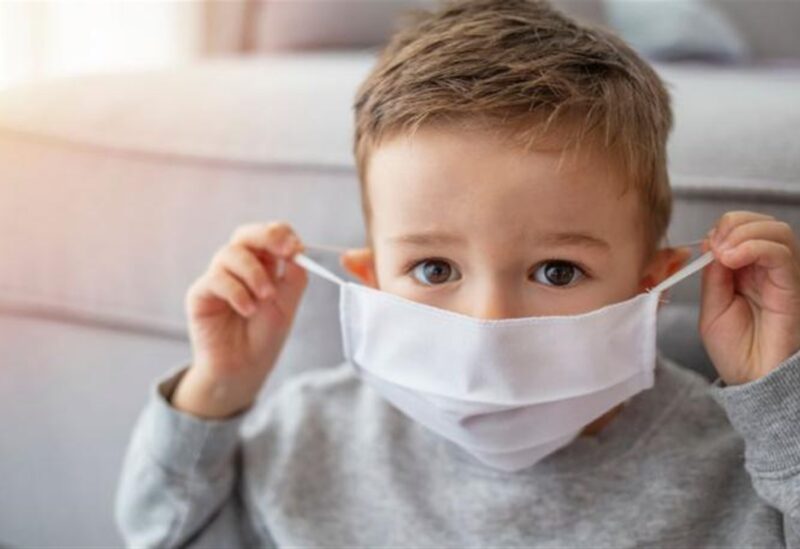
As many as a third of children diagnosed with coronavirus may suffer from long-COVID and continue to feel symptoms months after being diagnosed, a leading US health expert and researcher on the subject told Al Arabia English.
In what he describes as a “public health emergency,” Ashok Gupta, a chronic illness and long-COVID expert who has led studies on the lasting impacts of coronavirus, said children can experience long-lasting symptoms including chronic fatigue, discomfort and breathlessness.
Children from as young as two can also complain of persistent coughs, fevers, gut issues, as well as many other symptoms.
“Research in Italy found that 33 percent (of children) had symptoms four months later, with 25 percent having three or more symptoms,” said Dr Gupta.
“Several studies seem to indicate that it [long-COVID] is prevalent in between 5-30 percent of children diagnosed with COVID-19.
“A UK ONS study showed 10 percent of two-11-year-olds, 13 percent of 12-16-year-olds had long-COVID. In Russia, a quarter (25 percent) of children has symptoms longer term, and a Virus Watch study showed five percent of children after four weeks had long-COVID.”
The disparity in figures highlight the need for more research and studies into the topic, said Gupta.
Nevertheless, the expert said it is a growing phenomenon.
“Many millions are being poured into it (research) right now and it is a public health emergency.”
Gupta, a speaker at the Treat Long Covid Conference, said as cases of the highly infectious delta variant surge, so does the risk of developing long-COVID, and said this highlighted a growing importance for parents’ to safeguard their children’s immunity.
A concern for parents
While Gupta said long-COVID is a “concern for parents” he urged them “not to pass on these worries to their children as it can make it worse.”
“But instead, be positive in front of children and work on solutions.”
“We recommend plenty of rest, good sleep regimes and good anti-inflammatory diets.”
Dr. Azeem Abdul Salam Mohamad, and internal medicine specialist at Abu Dhabi’s Bareen Hospital, told Al Arabiya English that Long-COVID is a range of symptoms that can last weeks or months that can happen to anyone who has had COVID-19.
“The symptoms may affect a number of organ systems and frequently get worse after physical or mental activity. Symptoms vary from headache, extreme fatigue, muscle weakness, muscle pain, joint pain, and changes in memory,” he added.
A new study conducted by a team of researchers from the Murdoch Children’s Research Institute (MCRI) and published in the Pediatric Infectious Disease Journal found that the exact length of long-COVID is unknown, children who contract the virus will rarely experience after-effects lasting more than 12 weeks.
It said that the most common symptoms include headache, fatigue, sleep disturbance, abdominal pain and concentration difficulties.
“The low risk posed by acute disease means that one of the key benefits of COVID-19 vaccination of children and adolescents might be to protect them from long-COVID,” the study’s lead author Professor Nigel Curtis from the University of Melbourne was quoted as saying in a statement.
“An accurate determination of the risk of long COVID in this age group is therefore crucial in the debate about the risks and benefits of vaccination.”
The study’s authors also found that after 10 months of circulation, delta variant infections were not as severe in children than previous variants.
After analyzing and combining data from 14 studies conducted across the world involving over 19,000 kids who experience persistent problems after contracting COVID-19, the researchers found that those with chronic kidney disease, obesity, immune system disorders and cardiovascular disease were 25 times more likely to suffer a severe case of the virus.
When infected with COVID-19, children usually exhibit mild symptoms or none. They are also known to be hospitalized with the virus less than adults. However, despite this, the risks of long-COVID in this age group remain poorly understood.